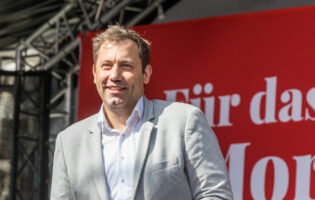
History and Memory in German-Israeli Relations: Varieties of Expression

Lily Gardner Feldman
Senior Fellow
Dr. Lily Gardner Feldman is a Senior Fellow at AICGS. She previously served as the Harry & Helen Gray Senior Fellow at AICGS and directed the Institute’s Society, Culture & Politics Program. She has a PhD in Political Science from MIT.
From 1978 until 1991, Dr. Gardner Feldman was a professor of political science (tenured) at Tufts University in Boston. She was also a Research Associate at Harvard University’s Center for European Studies, where she chaired the German Study Group and edited German Politics and Society; and a Research Fellow at Harvard University’s Center for International Affairs, where she chaired the Seminar on the European Community and undertook research in the University Consortium for Research on North America. From 1990 until 1995, Dr. Gardner Feldman was the first Research Director of AICGS and its Co-director in 1995. From 1995 until 1999, she was a Senior Scholar in Residence at the BMW Center for German and European Studies at Georgetown University. She returned to Johns Hopkins University in 1999.
Dr. Gardner Feldman has published widely in the U.S. and Europe on German foreign policy, German-Jewish relations, international reconciliation, non-state entities as foreign policy players, and the EU as an international actor. Her latest publications are: Germany’s Foreign Policy of Reconciliation: From Enmity to Amity, 2014; “Die Bedeutung zivilgesellschaftlicher und staatlicher Institutionen: Zur Vielfalt und Komplexität von Versöhnung,” in Corine Defrance and Ulrich Pfeil, eds., Verständigung und Versöhnung, 2016; and “The Limits and Opportunities of Reconciliation with West Germany During the Cold War: A Comparative Analysis of France, Israel, Poland and Czechoslovakia” in Hideki Kan, ed., The Transformation of the Cold War and the History Problem, 2017 (in Japanese). Her work on Germany’s foreign policy of reconciliation has led to lecture tours in Japan and South Korea.
May and June mark two important anniversaries in Germany’s postwar rebuilding and return to the community of nations: the end of World War II in Europe and the beginning of German-Israeli diplomatic relations. These two events have been instrumental in how Germany approaches its reconciliation efforts with both its former victims and its former enemies, a topic discussed in this working paper by Dr. Lily Gardner Feldman, originally presented on April 22, 2016 at a conference at George Mason University entitled “Facing a Violent Past: Dealing with History and Memory in Conflict Resolution.”
History and memory, specifically regarding the Holocaust, have indelibly defined the German-Israeli relationship since 1949. Over the last seven decades, the two partners have publicly introduced history and memory in a variety of ways: as acknowledgement of and responsibility for historical crimes; as acts of commemoration at memorial sites; as remembrance speeches on anniversaries of Holocaust events; and as negative backdrop for positive activities that underscore the friendship and partnership of contemporary German-Israeli relations. The first three expressions are direct examples of the role of history and memory in current ties, whereas the last is a more indirect manifestation. The first three speak to the moral motivations both Germany and Israel bring for the partnership, whereas the fourth reflects pragmatic thinking by Germany and Israel.
This paper examines the similarities and differences between the German and Israeli official approaches – between perpetrator and victim – to history and memory. Rather than analyzing these issues through the seven-decade life of the German-Israeli “special relationship,” the paper focuses on activities in 2015, in which the 70th anniversary of the end of World War II and the Holocaust and the 50th anniversary of diplomatic relations between the two countries coincided. While commemoration and remembrance have a long history in post-war Germany and in Israel, the 70th anniversary of the end of World War II and the Holocaust was underscored by leaders because of a dwindling generation of witnesses. Foreign Minister Steinmeier, for example, observed at the anniversary of the liberation of Sachsenhausen:
“[I]it is getting ever more difficult to keep this memory [of the Holocaust] alive as, unfortunately, ever fewer survivors of the National Socialist terror remain to recount their experiences themselves.” Conceptually, the analysis is informed by notions of history found in literature on reconciliation.









